An Ornithologist's Guide to Life Read online
Page 2
“We’re in the cut-rate cavern,” Martha whispers to the Reverend. “We missed all the good ones.”
He steps away from her. He has not forgiven her for what she said back in the parking lot. All it would take is a touch or a kiss, and she would have him back again. Martha stays away. She pretends she is part of a family from Georgia who knows all the answers to Stuart’s stupid questions. She is certain the family has been here before and so technically they are cheating when they shout out the answers. Still, they act smug.
“Have you been to Luray?” Martha asks the mother. They are making their way through a long tunnel. The Reverend’s red-flowered shirt disappears around a corner.
“They’re really commercial,” the mother tells Martha. “We like Endless best.”
Up close Martha sees that the woman is probably the same age as the Reverend.
“Your husband’s real cute,” the woman whispers. “Is he really a minister?”
Husband? Martha thinks. Her heart is beating too fast and all she can do is nod.
“Golly, our minister is an old fart with a gut out to here.”
“He’s nine years younger than me,” Martha blurts.
The woman looks pleased rather than appalled. “Good for you!” she says.
They reach the place where Stuart told them to wait for him. He is talking now about rivers in the caves but Martha could care less. The Reverend has his head bent, leaning toward Stuart, gobbling up all this useless information. Like at Gettysburg, where he had to stop at the visitors’ center and get brochures before they left. Then he kept reading to her from them. The next night, in bed, he’d recited the Gettysburg Address from memory in the voice she guessed he used for preaching. Remembering this, Martha feels a pang of something from long ago. A feeling that she cannot name. Unexpectedly, she thinks of Boo and how he used to wrap himself around her neck like a stole.
Martha moves closer to the Reverend, but he doesn’t look at her. Everyone is looking up at the ceiling.
“Many people see the face of Jesus there,” Stuart says in his deep voice.
Almost everyone is saying ah, and pointing.
Martha clutches the bag of fireworks in her hands. Despite the colder weather down here in the cave, her hands are sweating. When she presses the bag close to her chest she feels the cool hard bottle inside.
Reverend Dave is looking up too. Martha follows his gaze and tries hard to see the face of Jesus, but there is just more of the fake rock. This morning at the motel, the Reverend ran out of the bathroom, naked and wet, took Martha by the hand, and brought her to the small sliver of window by the shower. “Look! “ he said, awed. Martha had to stand on tiptoe to see.
“What?” she said.
The Reverend put his hands around her waist and lifted her so that she could see. Framed like a small painting were the Blue Ridge Mountains and the rolling hills below them. In the early morning mist, they seemed wrapped in gauze.
“Isn’t that one of the most beautiful things you’ve ever seen, honey pie?” he said in a soft voice, holding her there in place so that she was forced to look.
Martha squirmed out of his grasp. “I like the view from the bedroom better. Parking lot, strip mall, ribbon of highway.” She’d hoped he would know that she stole that phrase—ribbon of highway—from Woody Guthrie.
Now Martha stares hard at the spot where Stuart is shining his flashlight. She doesn’t want to make another wisecrack; she wants desperately to find something there. But before she has a chance, Stuart says, “Total cave darkness,” and turns off the light. They are left in a dark that is so thick, Martha cannot see the fingers she holds up to her own eyes. She finds herself leaning into the darkness. The bag she has been holding drops, and in the stillness there comes the shattering of the bottle and the yeasty smell of the beer.
“Oops,” someone says, and the group titters.
“In total cave darkness,” Stuart booms—like God, Martha decides, “you would go blind and crazy in just two weeks.”
Martha wants the lights on again. She wants to find a face in the cave ceiling. She is certain if given another chance she will see it. In the darkness, she reaches out, not certain what she will find. Through the beer and the musty cave smell, Martha smells the Reverend beside her. Until this instant she did not know she could recognize his scent. And then her hand finds his, warm and familiar. Martha cranes her neck and lifts her face upward. There is something there, she decides. The longer she stands like this, squeezing the Reverend’s hand and staring into the total cave darkness, the more that something begins to take shape. It is the blurry face of a stranger in a bar, promising her vodka if she will go home with him. It is the back of his New England Patriots sweatshirt as she stumbles across the parking lot toward his car, gagging on the smell of fresh sea air. She remembers peeling paint, sour sheets, a stranger’s body. She remembers that for three days last spring she did anything for her next drink.
Without warning, the lights come back on. They all squint at each other in the brightness. Martha sees the Reverend looking at her.
“Or maybe you like the darkness better?” Stuart asks, grinning. He snaps off the lights again.
Someone behind Martha gasps. But instead of panicking her, the darkness wraps itself around Martha and soothes her. It is as if she is falling, like the game she played as a child where you fall backward, hoping someone will be there to catch you.
THE RIGHTNESS OF THINGS
EVERY TIME RACHEL sees Mary, she is struck by how alike the two of them are—the same strawberry blond hair, the same parade of freckles across their arms and cheeks, even the same old wire-rimmed glasses, round ones that have bent over time and look slightly outdated; people often mistake them for sisters. Chasing Sofia up the steps to Mary’s house, Rachel considers this, the way they seem so alike, so close, but after five years of friendship, Rachel still feels slightly awkward coming here, to Mary’s house.
The house is a large Victorian, perfectly restored. It is a pleasant shade of pink, with a darker pink gingerbread trim. Inside, the rooms are dark and cool, the floors covered with Oriental rugs, the kitchen cupboards filled with the things one accumulates in married life—wedding gift soup tureens and espresso cups and parfait glasses, crystal vases that will be filled on Valentine’s Day and anniversaries, good china.
Perhaps that is what causes the feeling, Rachel thinks. Ever since her divorce three years ago, she and Sofia have lived on the top floor of a three family house in the iffier part of the city. In summer, now, the apartment is too hot and stuffy and Rachel imagines she can smell the remnants of every meal she has ever cooked there. They have no yard. Sofia’s room is too small to contain all the things a five-year-old needs, so that her dollhouse and play stove and drawing easel crowd the living room and kitchen.
Rachel hears Mary approaching; it always takes her a long time to answer the door. She will have been in the basement folding clothes, or upstairs braiding her daughter’s hair, or elbow deep in bread dough.
“Look at me, Sofia,” Rachel whispers.
Sofia looks up at her with red Kool-Aid rimmed lips. Her sweaty round face, dark eyes, tangled curls, break Rachel’s heart. She finds herself still angry at Peter for doing something as foolish and cliché as falling in love with his assistant. She finds herself angry at herself too. Three years later and she still has not found the right job, a better home, a new love.
The door creaks open, and there stands Mary—yes, it was bread she was making; there is flour on her shirt and in her hair—and her Sophia. It was what had brought them together in the first place: their daughters had the same name, though spelled differently, they later discovered. But that day in the supermarket—a day as hot as this one; Rachel had gone simply to cool off—when Mary had cooed to her daughter, Sophia, Sophia, you’re so good today, Rachel had blurted, Why, I have a Sofia too! and she’d pointed at her daughter, who was crushing a pint of strawberries, one by one. That was the summer Peter
had moved out, the summer Sofia had meningitis and was in the hospital for two weeks, the summer that Rachel thought of as the time when everything changed.
But Mary is ushering them into the house, and stands in the foyer calling, “Sophia! They’re here!”
There is the smell of burned candles, the hushed air, the stream of light spilling through the stained glass window that presides over the house’s impressive double staircase. Rachel thinks of church.
“Can I go up?” Sofia asks. Her voice is hushed too, awed, as it always is when they enter Mary’s house. She holds on to Rachel’s clammy hand.
Mary smiles down at her. “Yes. Of course. Run right up.”
Upstairs Sophia has her own playroom, with dolls lined up on shelves and a small table always set up for a tea party.
Rachel thinks Mary looks too pink, flushed, perhaps. She is Italian, but fair, and her skin burns too easily in the sun. When she gardens, she wears long sleeves, an oversized straw hat. Rachel has seen her like that, working in her garden. I like to make things grow, Mary has told her. She has given Rachel shoots from her plants, small pots of herbs for her windowsill, but Rachel cannot make anything thrive. Her houseplants refuse to flourish, even with expensive potting soil, careful attention, love.
“Have you been gardening?” Rachel asks, following Mary through her maze of rooms—the formal living room, the family room, the library, the pantry, and then finally, the kitchen.
“Not today,” Mary says. “Too hot.”
The kitchen is overly bright, a sunshine yellow that Mary has told Rachel was common in Victorians. But it reminds Rachel of her own old dorm room. She and her roommate had painted the cinderblock walls a similar yellow with bright orange trim and put Indian bedspreads on their beds. When they got stoned at night, the room seemed to vibrate. It made them think of sunsets.
Mary pours two tall glasses of iced tea, and points to the bread cooling on the counter.
“I thought it would be ready by the time you got here but I’m moving so slowly,” she says.
Rachel laughs. They both know that Mary always gets everything done. She goes to church. She gives dinner parties. She works out every day.
“Right,” Rachel says. “Slow for you is still high speed for the rest of us.”
Mary leans toward Rachel, conspiratorially. “No,” she says, lowering her voice. “I am slow. You’ll never guess.”
Rachel shrugs, smiles. Mary often has announcements. She and Dan are going to India, or she’s heading a clothing drive for children’s winter coats, or Sophia is going to a certain private school. She shares all of this information like it’s top secret, as if Rachel is the only one she’s divulging the information to.
“What?” Rachel says. The tea has fresh mint in it.
“I’m pregnant,” Mary says, squeezing Rachel’s arm with both of her cold, dry hands.
“Pregnant?” Rachel repeats, and her own stomach does a strange flop.
“Fourteen weeks,” Mary tells her.
It comes back to Rachel, how in pregnancy time is counted week by week. It takes her a moment to calculate.
“Why, that’s over three months!” Rachel says finally.
Mary’s face clouds. “Don’t be mad,” she says, still gripping Rachel’s arm. “I would have told you sooner, but I felt so superstitious. It’s silly, I suppose. But we’ve been trying for two years—”
“You have?” Rachel asks, startled. Of course Mary wouldn’t have told her that; they really aren’t good enough friends for such an intimacy. Rachel used to refer to Mary as one of her “Mommy friends,” the women she saw for play dates or in the playground or at Story Hour at the local bookstore. With her other friends, the ones she often thought of as her real friends, she sometimes made fun of the other mothers, their competitiveness, their ability to discuss trivial things endlessly. With her real friends, Rachel drank wine and rented foreign movies and stayed up too late; with her Mommy friends she put on a different, more placid face.
Somehow, she supposed, watching Mary’s concerned expression, Mary fell somewhere in between.
“You are angry,” Mary is saying. “It was silly of me to not tell you sooner. I just didn’t want to jinx it, that’s all.”
“I was the same way,” Rachel lies. “With Sofia. I waited forever to tell people.”
Really she called everyone, immediately. She can still remember staring at the bright pink circle on the home pregnancy test while she dialed the phone. But Mary looks relieved.
“I just didn’t want to jinx it,” she says again. “You hear so many stories.” Her face softens. “I’m so glad you’re not mad at me,” she says.
IT IS PETER’S weekend to have Sofia. These Fridays leave Rachel with such a mixed feeling—glad to have some time to herself, but jealous too, of all the hours he will have with Sofia. Packing her daughter’s Little Mermaid suitcase, folding the baby doll pajamas, and tucking her Madeline doll in the zipper compartment, Rachel knows that it is not just the hours Peter will have with their daughter; it’s the hours Yvonne will have. When Peter left them and moved in with Yvonne, everyone told Rachel it would never last. He’ll be back, they assured her. But now, three years later, Peter and Yvonne are still together, cozily ensconced in a cottage at the beach.
Although Rachel has never been there, she imagines it every time Sofia drives off with them for the weekend. Weathered shingles, dark green shutters, Adirondack chairs overlooking the water. Some of these details she’s gleaned from Sofia, or the dozens of pictures Yvonne and Peter take and send home with her. Others she makes up—sheer curtains, a clawfoot tub, botanical prints. And of course the animals. Sofia talks about them by name. Lulu Gus Annabelle Rusty MacNamara Beatrice Bubba. But Rachel gives them faces, breeds. She imagines two tabby cats, an Irish setter, several mutts, and a pair of cockatiels. Peter is a veterinarian, and he cannot resist a hurt or homeless animal. The one thing Rachel does not miss about her marriage is all the hours nursing strays, making splints for bunnies, or cleaning wounds. She lost an Afghan to blindness, a cat to feline leukemia, several dogs to hit and runs. It was too much. Now, she and Sofia keep goldfish. When one dies, they unceremoniously flush it down the toilet and go and buy a new one. Rachel likes that. You don’t invest emotion in goldfish.
Outside, a horn beeps.
Rachel looks down the three stories to the street below, where Peter and Yvonne sit in his blue Honda, the same one he and Rachel picked out when she was pregnant with Sofia. It was reliable, they thought. Sensible. A good family car.
Sofia runs in to get her suitcase.
“Did you forget Madeline?” she asks. She stands on tiptoe and peeks out the window too.
“No,” Rachel says, snippy. She has never forgotten to pack the doll, yet Sofia asks her every time.
Sofia swoops her suitcase from the bed, and begins to skip away.
“We’re going for chowder and clamcakes,” she says, grinning.
Her hair needs to be combed again, Rachel notices. And there is a spot of something bright blue in the middle of her Simba tee shirt. She will come back neater, bathed and shampooed with expensive beauty products made from papaya and mango and coconut. After her last weekend there, she returned with a white rope bracelet that she has refused to take off her wrist, even though it grows dingier every day.
“Have fun,” Rachel says, trying to sound cheerful.
Sofia hesitates, frowning in the doorway.
The horn beeps again.
Sofia runs back into the room and hugs Rachel around the legs, hard, so that she is thrown slightly off balance.
“See you Sunday!” Sofia shouts, gone that fast.
Rachel turns back to the window. In a few seconds, Sofia appears, skipping again, across the front yard, a sad lot of dirt and tufts of brownish grass that remind Rachel of an old man’s head.
“Daddy!” Sofia is shouting, happily.
Rachel’s stomach tightens. Peter gets out of the car and picks Sofia up
into his arms, bear hugs her, spinning slightly. Sofia’s thin legs wrap around her father’s waist. Rachel sees the bottoms of her Keds as the two of them twirl. She sees the bright blond—dyed, her friends had assured her—of Yvonne’s hair. She wants to turn away; there are things to get done. But behind her the house hums with quiet, and Rachel finds she cannot move from her spot at the window.
RACHEL HAS CONVINCED herself it is not a date. It is just dinner at Mary and Dan’s.
“I’ve never fixed anyone up before,” Mary told her on the phone that next morning, Saturday. “So I can’t say that’s what this is. But Dan’s cousin Harry is coming over for dinner tonight and he was supposed to bring Victoria, his girlfriend, well, his ex-girlfriend, I guess, because he called fifteen minutes ago and said they’ve broken up but could he come anyway. And Dan and I immediately had the same thought: Rachel.” She paused, then added, “He’s an architect.”
Rachel was nursing a hangover; she’d had too much white wine the night before while she’d watched Four Weddings and a Funeral, a stupid movie to rent on a night when you’ve pulled out your own wedding album and cried over it.
Dressing for dinner, Rachel blames that early morning hangover for making her agree to go to Mary’s. She hardly knows Dan; she has been single ever since she met Mary and, politely, Mary doesn’t usually invite Rachel to couples’ things. At Sophia’s birthday parties, he is always there, grinning behind the video camera, handing out little Cinderella napkins and paper plates, pouring lemonade. But Rachel can hardly say she knows him. Tonight seems like one of those lines that she and Mary do not cross. On weekends, they don’t even speak on the phone, never mind having dinner together.

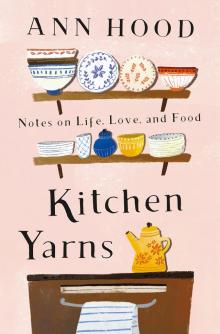 Kitchen Yarns
Kitchen Yarns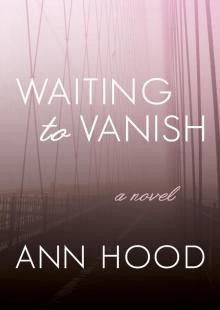 Waiting to Vanish
Waiting to Vanish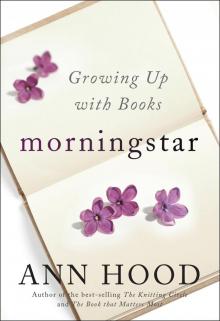 Morningstar
Morningstar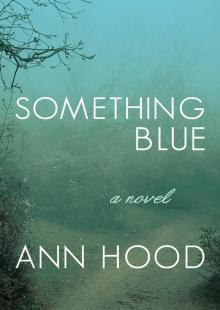 Something Blue
Something Blue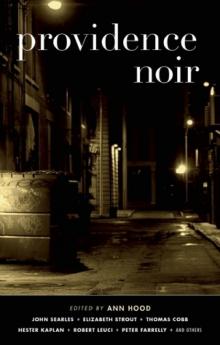 Providence Noir
Providence Noir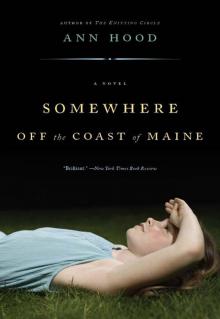 Somewhere Off the Coast of Maine
Somewhere Off the Coast of Maine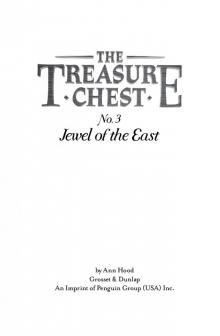 Jewel of the East
Jewel of the East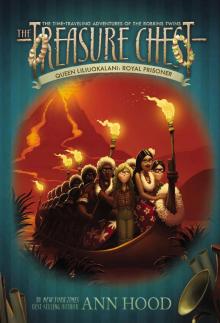 Queen Liliuokalani: Royal Prisoner
Queen Liliuokalani: Royal Prisoner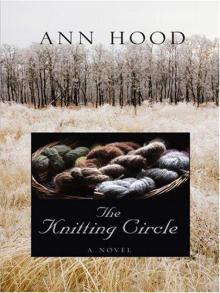 The Knitting Circle
The Knitting Circle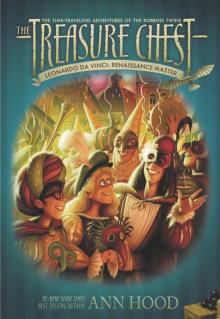 Leonardo da Vinci: Renaissance Master
Leonardo da Vinci: Renaissance Master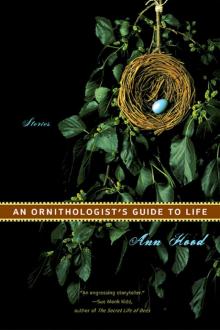 An Ornithologist's Guide to Life
An Ornithologist's Guide to Life The Red Thread
The Red Thread She Loves You (Yeah, Yeah, Yeah)
She Loves You (Yeah, Yeah, Yeah)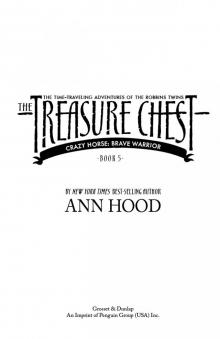 Brave Warrior
Brave Warrior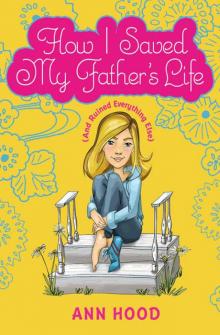 How I Saved My Father's Life (and Ruined Everything Else)
How I Saved My Father's Life (and Ruined Everything Else)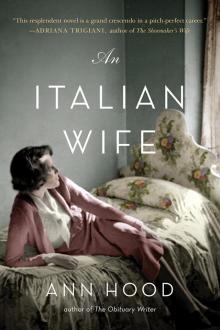 An Italian Wife
An Italian Wife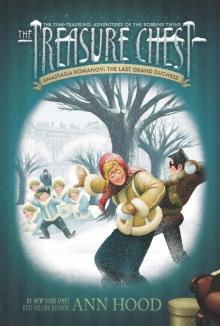 Anastasia Romanov: The Last Grand Duchess #10
Anastasia Romanov: The Last Grand Duchess #10 Prince of Air
Prince of Air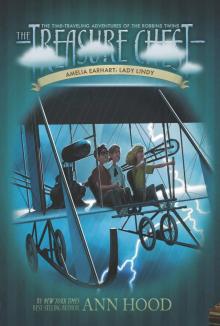 Amelia Earhart: Lady Lindy
Amelia Earhart: Lady Lindy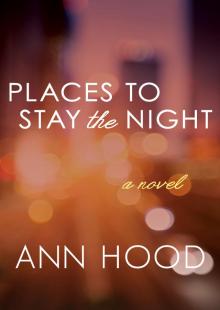 Places to Stay the Night
Places to Stay the Night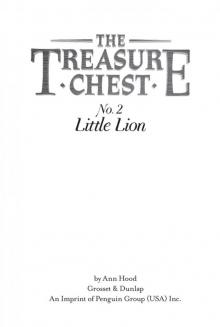 Little Lion
Little Lion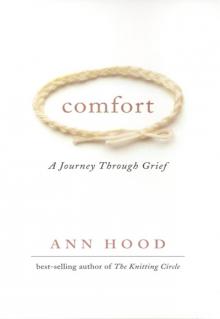 Comfort
Comfort Angel of the Battlefield
Angel of the Battlefield